第6章
When he went to the House of Burgesses he carried his long rifle, and traversed roads not a mile of which was free from the danger of Indian attack. The settlements in the early years depended exclusively upon game for their meat, and Boone was the mightiest of all the hunters, so that upon him devolved the task of keeping his people supplied. He killed many buffaloes, and pickled the buffalo beef for use in winter. He killed great numbers of black bear, and made bacon of them, precisely as if they had been hogs.
The common game were deer and elk. At that time none of the hunters of Kentucky would waste a shot on anything so small as a prairie-chicken or wild duck; but they sometimes killed geese and swans when they came south in winter and lit on the rivers.
But whenever Boone went into the woods after game, he had perpetually to keep watch lest he himself might be hunted in turn. He never lay in wait at a game-lick, save with ears strained to hear the approach of some crawling red foe. He never crept up to a turkey he heard calling, without exercising the utmost care to see that it was not an Indian; for one of the favorite devices of the Indians was to imitate the turkey call, and thus allure within range some inexperienced hunter.
Besides this warfare, which went on in the midst of his usual vocations, Boone frequently took the field on set expeditions against the savages. Once when he and a party of other men were making salt at a lick, they were surprised and carried off by the Indians. The old hunter was a prisoner with them for some months, but finally made his escape and came home through the trackless woods as straight as the wild pigeon flies. He was ever on the watch to ward off the Indian inroads, and to follow the warparties, and try to rescue the prisoners. Once his own daughter, and two other girls who were with her, were carried off by a band of Indians. Boone raised some friends and followed the trail steadily for two days and a night; then they came to where the Indians had killed a buffalo calf and were camped around it.
Firing from a little distance, the whites shot two of the Indians, and, rushing in, rescued the girls. On another occasion, when Boone had gone to visit a salt-lick with his brother, the Indians ambushed them and shot the latter. Boone himself escaped, but the Indians followed him for three miles by the aid of a tracking dog, until Boone turned, shot the dog, and then eluded his pursuers. In company with Simon Kenton and many other noted hunters and wilderness warriors, he once and again took part in expeditions into the Indian country, where they killed the braves and drove off the horses. Twice bands of Indians, accompanied by French, Tory, and British partizans from Detroit, bearing the flag of Great Britain, attacked Boonesboroug. In each case Boone and his fellowsettlers beat them off with loss. At the fatal battle of the Blue Licks, in which two hundred of the best riflemen of Kentucky were beaten with terrible slaughter by a great force of Indians from the lakes, Boone commanded the left wing. Leading his men, rifle in hand, he pushed back and overthrew the force against him; but meanwhile the Indians destroyed the right wing and center, and got round in his rear, so that there was nothing left for Boone's men except to flee with all possible speed.
As Kentucky became settled, Boone grew restless and ill at ease.
He loved the wilderness; he loved the great forests and the great prairielike glades, and the life in the little lonely cabin, where from the door he could see the deer come out into the clearing at nightfall. The neighborhood of his own kind made him feel cramped and ill at ease. So he moved ever westward with the frontier; and as Kentucky filled up he crossed the Mississippi and settled on the borders of the prairie country of Missouri, where the Spaniards, who ruled the territory, made him an alcalde, or judge. He lived to a great age, and died out on the border, a backwoods hunter to the last.